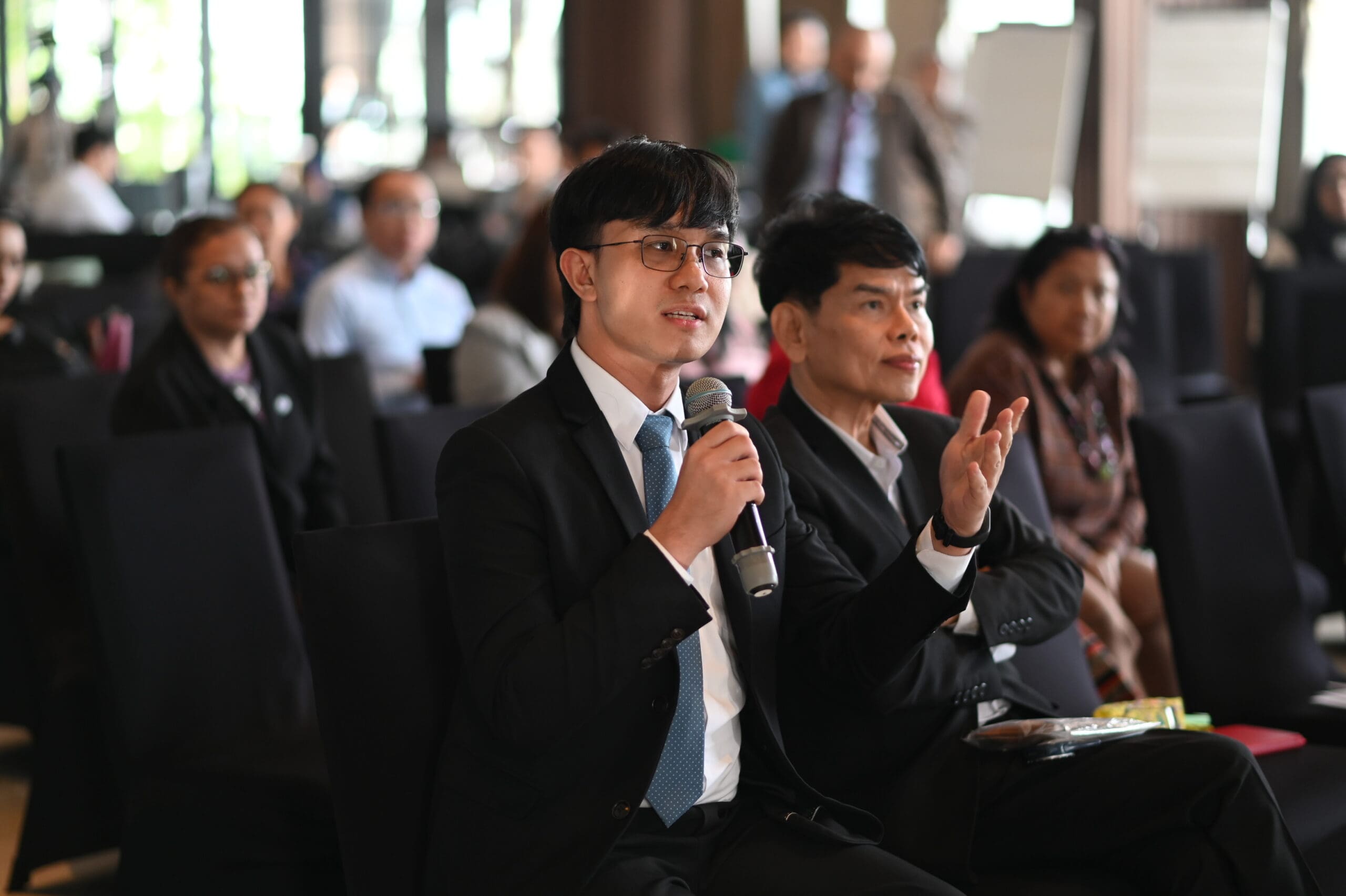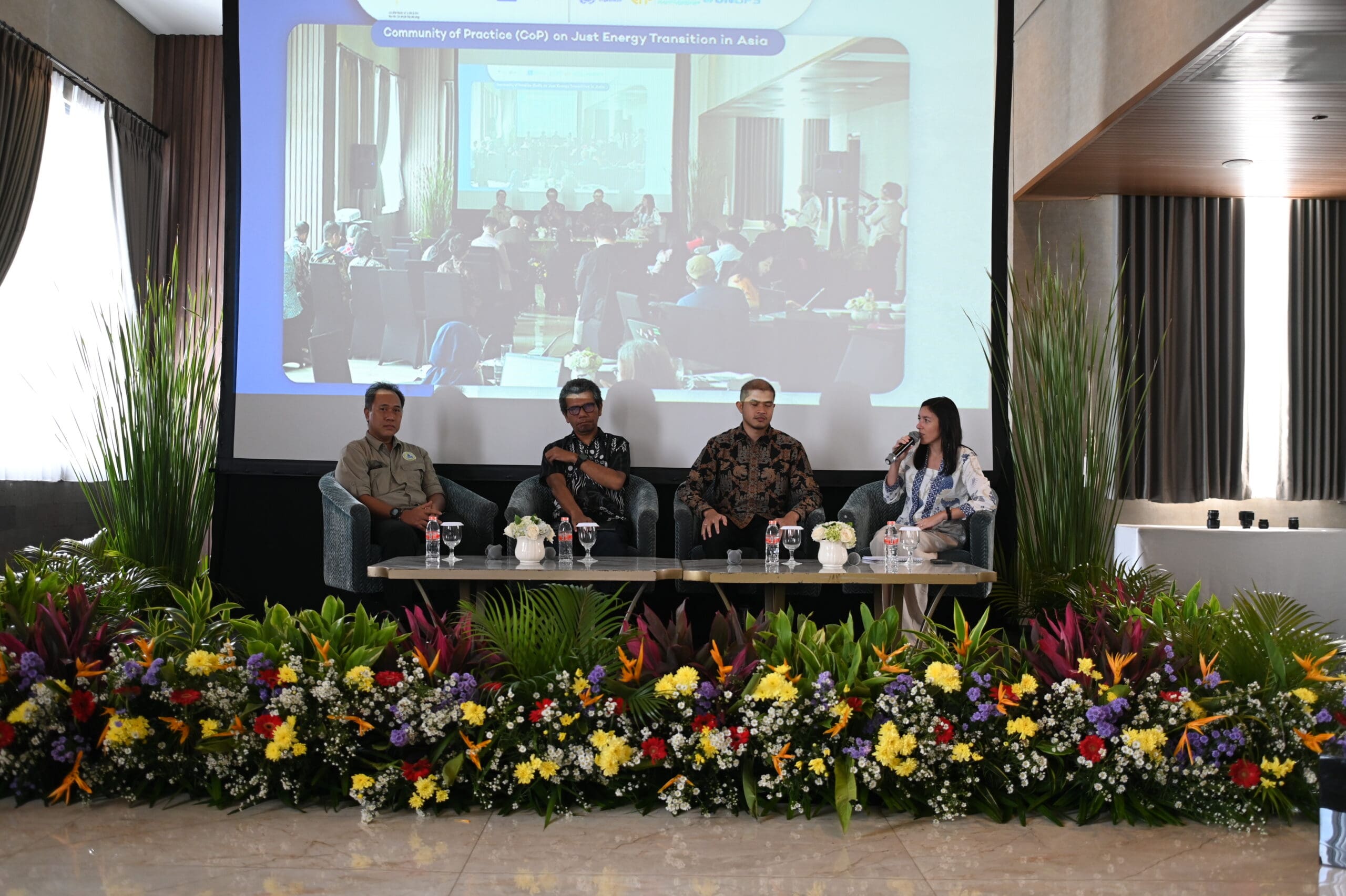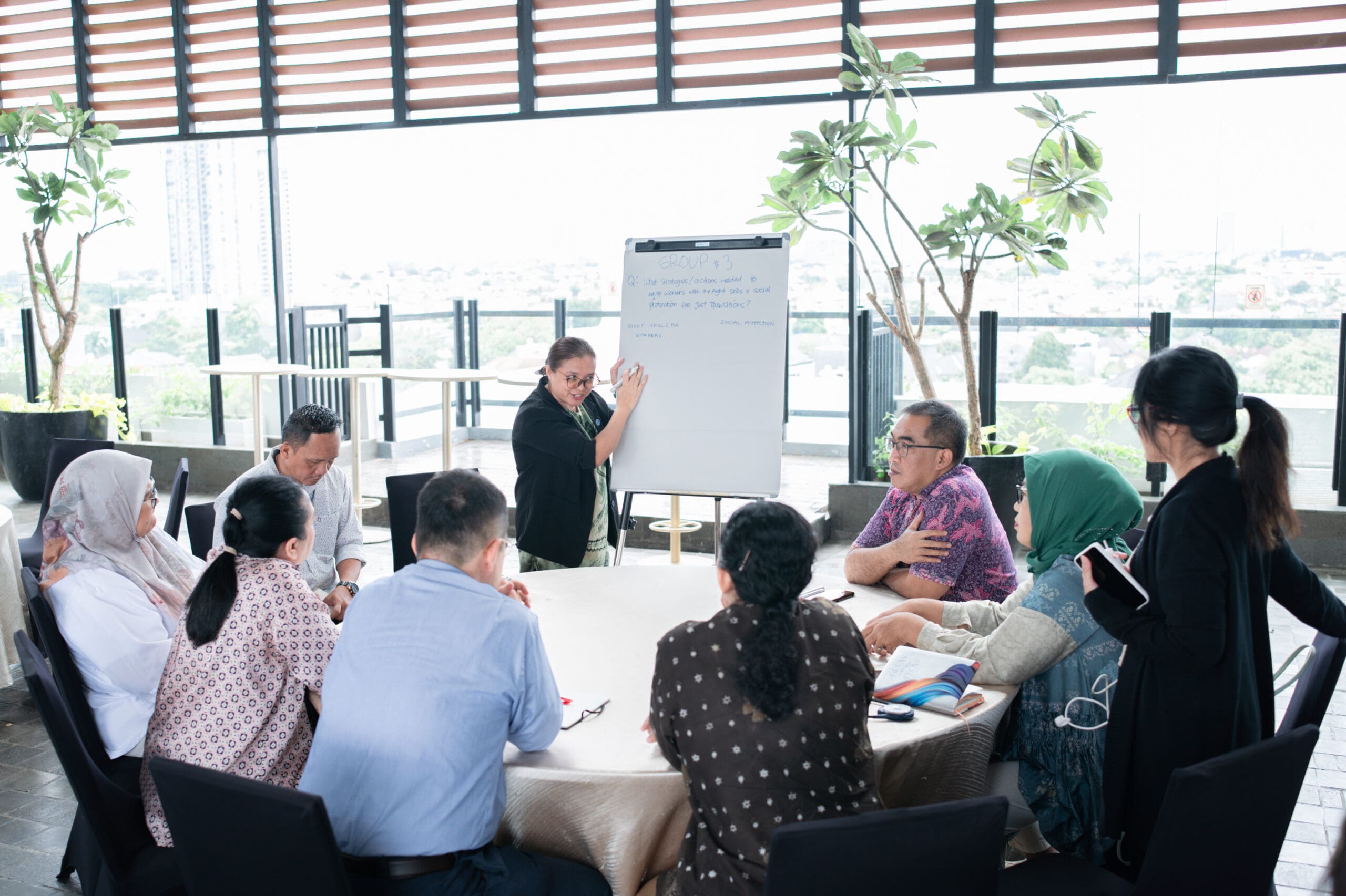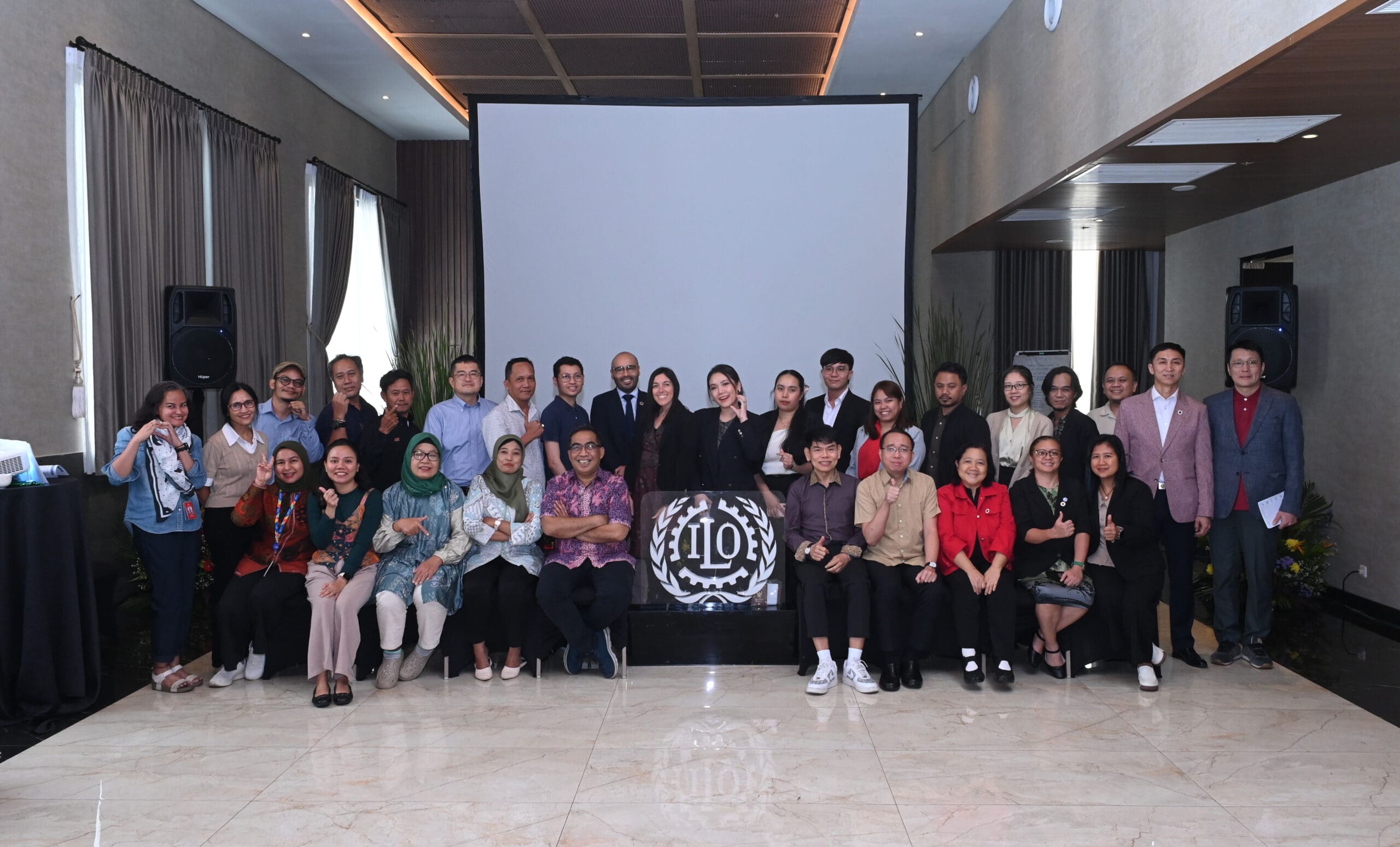“A just energy transition is something we have to get right”: Camilla Roman on how ILO is supporting coal regions in transition
The International Labour Organisation (ILO) ensures that the needs of coal region workers are represented...
Event summary
As the Asia–Pacific region accelerates its shift towards greener energy, skill development, social protection, and social dialogue are emerging as critical drivers of a just energy transition—one that ensures no one is left behind.

As Asia and the Pacific accelerates its shift towards greener energy, policy-makers, employers, workers’ organisations, civil society, and academia from the region gathered in Jakarta on 18 and 19 March 2025 for the latest discussions on how a just energy transition can help to ensure an inclusive and equitable energy move away from coal across the region.
The recently established Community of Practice (CoP) on Just Energy Transition in Asia saw participants from Indonesia, Mongolia, the Philippines, Thailand, and Vietnam exchange progress updates, challenges, and best practices in transitioning away from coal and fossil fuels.
“Businesses don’t wait for policies, they build the future every day,” said Siripong Intavadee, Advisor at the Employers’ Confederation of Thailand, reminding the participants that each stakeholder has a key role to play. Meanwhile, Enerel Altanzagas, Head of Program Department at the Mongolian National Chamber of Commerce and Industry, shared ongoing initiatives, such as the Energy Council set up in 2023 to discuss energy-related issues, and programmes for youth and gender inclusion in the energy transition.
The two-day workshop, organised by the International Labour Organization (ILO) in partnership with the United Nations Office for Project Services and Southeast Asia Energy Transition Partnership as part of the Innovation Regions for a Just Energy Transition (IKI-JET) project, discussed and reinforced the importance of skills development, social protection, and inclusive policy dialogue. Equipping workers with new skills, designing social protection for income loss, and fostering social dialogue are key to ensuring that the transition creates opportunities rather than deepening inequalities.

Bernard Paul Mangulabnan, Acting Chief Labor and Employment Officer at the Department of Labor and Employment of the Philippines, said: “We recognise that this transition must be just and equitable. It is essential to ensure that workers and communities affected by the transition are supported through reskilling programs, social safety nets, and the creation of new green jobs.”
Workers in fossil fuel industries face job displacement and skill mismatches, making it difficult for them to transition into green jobs due to limited access to reskilling programs. Many also experience job security concerns, including wage instability and inadequate social protection measures.
Helen Simplina, Project Officer at the Federation of Free Workers in the Philippines, highlighted these concerns, stating: “There will be a lot of jobs lost due to this transition to green renewable energy. Workers in coal mines, transportation, and businesses that started to transition—some departments will be eliminated. The point of just transition is to create new opportunities and jobs. But it has to be acknowledged that workers who have been in these industries for decades and are near retiring age must be included in the renewable energy transition process.”

“A lot of people in our community still don’t know anything about the just transition because we can only manage to provide knowledge-sharing support for some people in the union,” said Agus Supriyatna, a representative of Indonesian trade unions from the Indonesian Workers Welfare Union (Konfederasi Serikat Buruh Sejahtera Indonesia). “In the future, we hope that we can receive more support from the government or other institutions to come together and share knowledge about the just transition.”
To address these challenges, the CoP is fostering partnerships and peer-to-peer learning. Economic diversification, innovative financing mechanisms (such as corporate social responsibility grants and carbon pricing), and high-level policy coherence are key areas of focus that emerged from participants’ exchanges.
“Achieving a just transition requires governments, employers, and workers to work together,” emphasised Fredy Guayacan, Senior Specialist on Environment and Decent Work at ILO. “Investment in skills, awareness raising, social protection, and social dialogue must be prioritised.”
Simrin Singh, ILO Country Director for Indonesia and Timor-Leste, reinforced the importance of tripartite collaboration, stating, “We profoundly believe that it takes all three actors—governments, workers, and employers—to find solutions so that the transition is truly just. It must be owned, understood, and driven by stakeholders at all levels. This approach is a formula for peace and development, rather than conflict and inequality.”

About the JET CoP
The CoP on Just Energy Transition in Asia aims to support key stakeholders in coal regions in planning and implementing just energy transition pathways in line with the Paris Agreement and the ILO Just Transition Guidelines. Acting as a dynamic hub, the CoP facilitates knowledge sharing, best practice exchanges, and policy shaping among policy-makers, workers, and employers. It promotes an inclusive and equitable labour market transformation through peer-to-peer learning, capacity building, and strengthened cooperation among regional policymakers.
This initiative is part of the IKI-JET project, jointly funded by the German Federal Ministry for Economic Affairs and Climate Action under the International Climate Initiative and by the European Commission’s Directorate-General for International Partnerships for the Just Energy Transition in Coal Regions Interregional Platform.
All photos by ILO/IKI JET. For more detailed coverage of the event, including key session takeaways and speaker highlights, see the full Summary Report. Read the press release here.
You can find all presentations here. Watch the full recordings below:
Day 1
Day 2
Receive updates on just energy transition news, insights, knowledge, and events directly in your inbox.